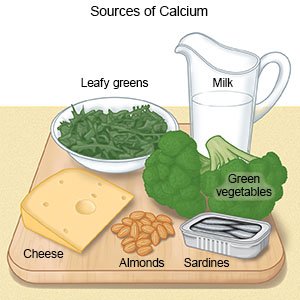Hypocalcemia
Medically reviewed by Drugs.com. Last updated on Apr 2, 2024.
Hypocalcemia is a low level of calcium in your blood. It occurs when your body loses too much calcium or does not absorb enough from the foods you eat.
WHILE YOU ARE HERE:
Informed consent
is a legal document that explains the tests, treatments, or procedures that you may need. Informed consent means you understand what will be done and can make decisions about what you want. You give your permission when you sign the consent form. You can have someone sign this form for you if you are not able to sign it. You have the right to understand your medical care in words you know. Before you sign the consent form, understand the risks and benefits of what will be done. Make sure all your questions are answered.
Intake and output
may be measured. Healthcare providers will keep track of the amount of liquid you are getting. They also may need to know how much you are urinating. Ask healthcare providers if they need to measure or collect your urine.
Prevent falls:
Use your call button to ask your healthcare provider for help before you get out of bed. This will help prevent injury.
Tests:
- Telemetry is continuous monitoring of your heart rhythm. Sticky pads placed on your skin connect to an EKG machine that records your heart rhythm.
- Blood tests will be done to monitor your calcium, vitamin D, and hormone levels. They will also show how well your treatment is working.
Treatment:
Calcium will be given to bring your levels back to normal. This may be given as a pill or IV. You may also need vitamin D or medicines to prevent bone loss.
Treatment options
The following list of medications are related to or used in the treatment of this condition.
Nutrition:
A dietitian may meet with you to plan the best way to make sure you get enough calcium and vitamin D in the foods you eat. Foods that contain calcium include milk, yogurt, cereals, and cheese. Leafy green vegetables, oranges, canned salmon, shrimp, and peanuts also contain calcium. Do not have caffeine or alcohol. These can slow your body's ability to absorb calcium.
 |
RISKS:
Hypocalcemia may lead to low blood pressure, a slow or uneven heartbeat, or chronic heart failure. You may have muscle spasms that make it hard to breathe. Your signs and symptoms, such as heart rhythm problems, confusion, or seizures, will worsen without treatment. You may be at a greater risk for broken bones or falls. Severe hypocalcemia can be life-threatening.
CARE AGREEMENT:
You have the right to help plan your care. Learn about your health condition and how it may be treated. Discuss treatment options with your healthcare providers to decide what care you want to receive. You always have the right to refuse treatment.© Copyright Merative 2024 Information is for End User's use only and may not be sold, redistributed or otherwise used for commercial purposes.
The above information is an educational aid only. It is not intended as medical advice for individual conditions or treatments. Talk to your doctor, nurse or pharmacist before following any medical regimen to see if it is safe and effective for you.
Learn more about Hypocalcemia
Treatment options
Care guides
Further information
Always consult your healthcare provider to ensure the information displayed on this page applies to your personal circumstances.
